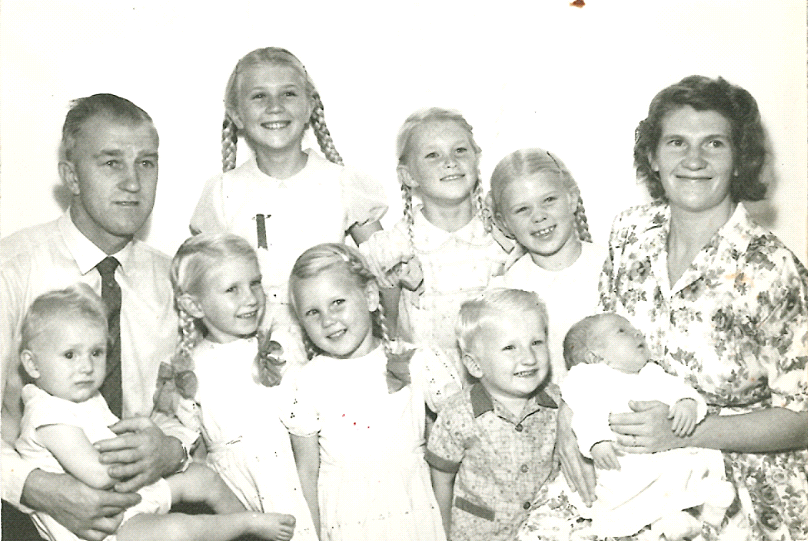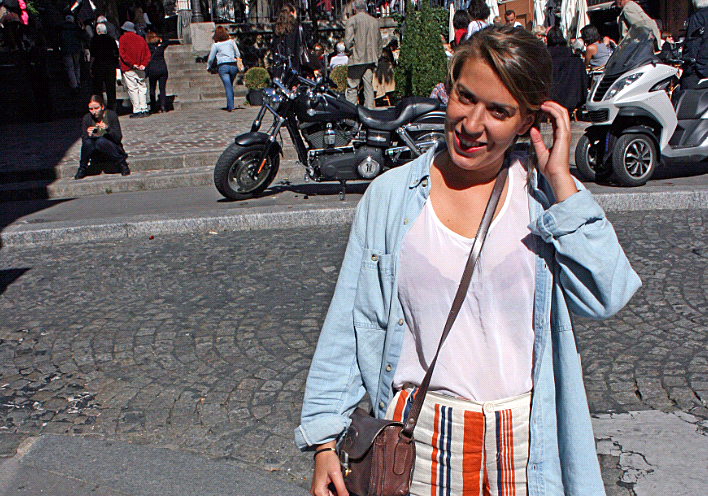Gloriavale: The Other Side, From the Inside
Melissa Harrison on the irresponsibly soft treatment TV has afforded to the South Island cult her family escaped.
Melissa Harrison writes on the irresponsibly soft treatment TV has afforded to the South Island cult her family escaped.
I can recall various junctures throughout my life when a flurry of Gloriavale documentaries and articles would be splattered across our TV screens, newspapers and magazines. Until the past couple of years, most of the coverage was relatively serious-minded and critical. It focused on the court cases for indecent assault involving the community’s leader and the narratives of those who embarked on the fraught process of leaving. But now: now we can tune into TV2 or TVNZ OnDemand on an annual basis for a ritualistic, reality TV-esque peek into what goes on inside.
For the casual viewer, there’s no denying that the subject matter is fascinating, and at times comical - but the way Gloriavale is being presented for our consumption now is exploitative and negligent. As a piece of television, its makers are satisfied to deliver us our LOLs in a steady stream of sound bites and sight gags, and it satisfies our voyeuristic longings for the strange; all with no critical engagement, no history, no varied perspectives. Critical engagement probably isn’t as fun.
Contrary to TVNZ’s sanctioned coverage, Gloriavale isn't some spectacle, ripe to be exploited for entertainment. It’s not fictional. They are real lives, and they're not all that funny. Don’t get me wrong - my siblings and I often try to make sense of our family’s sad and broken history with humour. It may not be the healthiest way of dealing with it, but it makes the burden of having a convicted sex criminal for a grandfather - one who refuses to acknowledge you - just a little lighter.
We have witnessed the pain of our parents being wholly rejected by their families, the suffering of cousins growing up without the love of their mother, the mental illness that has crept into manipulated and traumatised psyches, and the ongoing psychological effects of sexual abuse. At least our jokes come with context.
The rhetoric that the people are happy is tiring. Yes, there are good people in Gloriavale; yes, we could all use less consumer capitalism in our lives; and, yes living out our days with more cooperation would make for a better society. But Gloriavale is not the prototype for that. The members have been stripped of their choice and their will, and I struggle to believe true and meaningful happiness exists devoid of these. There can be no reasonable doubt that these people— the women in particular — are subjugated. Sentiments that suggest otherwise are naive.
Yes, there are good people in Gloriavale; yes, we could all use less consumer capitalism in our lives; and, yes living out our days with more cooperation would make for a better society. But Gloriavale is not the prototype for that.
I recently listened to a Radio New Zealand interview with the director of the current Gloriavale series, Amanda Evans, and it was infuriating. It opens with a semantic quibble about interviewer Wallace Chapman’s choice of the word “compound” to describe Gloriavale – correcting Chapman's language and citing the lack of searchlights or barbed wire, Evans responds, “I would say I’m at the community.”
When questioned about their choice to gloss over the criminal history and the negation of any dialogue with past members, she responds: “Negative stories, documentaries, they do well - there will always be people chasing the ratings for that reason.” The lack of self-awareness in this statement was bemusing, irony in a later statement of her series’ success even more so: "The audience have voted with their remote controls and they are tuning in in droves."
I think anyone who has a wider understanding of Gloriavale can see that there is a deliberate choice to eschew an honest and complete portrayal, or any form of serious and sustained criticism, in favour of appeasing the community leaders so as to keep the door open and let the ratings rampage continue.
She later suggests that people are free to leave. The people of Gloriavale may be able to leave, but they're certainly not free to leave. Suggesting they are spits in the face of the incredible sacrifices my parents made to enable my siblings and me to live the lives we do. It spits in the face of every person who has forsaken the love and acceptance of their family in order to exercise their free will and give their own children choices they never had.
I still remember being told by my Mum that she spent the first three years after they escaped waking up every night experiencing cold sweats and tremors, so truly did she believe she would face eternal damnation for leaving, so strong was her indoctrination. At the same time, she believed her children would avoid damnation because they themselves did not make the decision. In other words, my mother sacrificed what she thought was her eternal salvation so that we would have the choices we do today: irrespective of your own beliefs, that’s a pretty heavy toll. Please don’t belittle it as an easy matter of choice.
I still remember being told by my Mum that she spent the first three years after they escaped waking up every night experiencing cold sweats and tremors, so truly did she believe she would face eternal damnation for leaving, so strong was her indoctrination.
I recall visiting Gloriavale, with my sister and her fiancé, with equal clarity. At the age of 24, I met many of my cousins, aunties and uncles for the very first time. Despite these blood ties, I was told not to foster a sense of place or belonging with my own flesh and blood. As the gatekeeper and spokesman I confirmed my trip with made clear, “You have no family here, but you can visit.”
My parents have never been allowed to set foot on the premises since they left, and with their disownment came the complete severance of our family ties. We were welcomed in, perhaps in the hopes they might entice us, but were not allowed to meet our mother’s father, a man we are not entitled to call our grandfather, Neville Cooper (aka Hopeful Christian).
The first woman I spoke to offered, without any prompting, “I love my life here, there is no greater joy than being a wife and mother.” So did the next, and the next, and the next: the 16th utterance of the exact same line had convinced me forever they are fed a script for visitors.
Unfortunately, the rose-tinted notions promoted in the current Gloriavale series have been repeated by those who should know better. I had a similar reaction to an interview with Cantabrian sociologist Andrew Sepie that was published in the NZ Herald last year, suggesting that the members of Gloriavale are not subjugated:
It's not a lifestyle I would choose. But in actually talking to a lot of the people that are there I couldn't help thinking, 'They have a happier and simpler life than I do.'
I looked at a lot of the kids, and I thought, 'You're not going to be teased in school because you've got the wrong Nikes on, and you're not going to be logging into Facebook and getting people telling you you're fat.' So I thought, okay, there's something.'…
…When I went in there the first time I was [thinking], 'Okay, what am I going to find,' and then it's when you come to understand something a little more [you think], 'That's cool.'
What follows is something I wrote, but never sent, and I hope it reads as an open letter to all those who share an image or participate in a dialogue of Gloriavale that ignores the control, the subjugation, and the outright abuse that occurs there every single day.
Dear Mr. Sepie,
Your ‘evaluation’ of Gloriavale was perhaps the least insightful reflection I have read to date. I was, quite simply, baffled by the lack of discernment. It appears you, like many others, were duped by their fine craft of manipulation. And for someone with your position of ‘expertise’, I, quite frankly, find it concerning. They’re not ‘masking anything sinister’, you say? I, too, have visited Gloriavale and my reading stands in complete contrast to yours. Perhaps this is because I have been exposed to the destruction.
Perhaps it is because my Grandfather, the leader and a convicted sexual offender, doesn’t recognise me as his granddaughter simply because of the incredible decision my parents made to leave and raise their children with the right to choose.
Perhaps it is because I have listened to the numerous accounts of sexual abuse at the hands of the leaders and have seen the psychological damage it has caused the victims.
Perhaps it is because I have witnessed what it means for those courageous enough to leave with no remuneration for the work they have done and completely penniless, no high school education, completely disowned by the only people they have ever known.
Perhaps it is because the harrowing description of babies being suffocated to the point of unconsciousness as a device to silence them during church services penetrates the very core of my being.
Perhaps it is because I saw my Mother fall to her knees and wail when she received the call from the police to inform her that they found the body of her brother hanging from a tree: the brother who was forced to besmirch his mother - denouncing her as a whore to her face - during a ‘men’s meeting’ in order to leave, and who was later prohibited, along with every other sibling who left, from attending her funeral.
A ‘men’s meeting’ is not so dissimilar to wartime interrogations: shut in a room, deprived of food and water for days on end, while the leaders crack into your mind, finding footholds to reassert their control.
You appear to have an unusual concept of control. The choice to leave is not the simple feat you portray it to be. You flippantly approve of this place with ‘that’s cool’. Really? It’s not cool, man.
Control is not cool. Manipulation is not cool. Being disenfranchised of your right to choice is, certainly, not cool.
I, like most children, don’t always agree with my parents; but, I will forever hold the utmost admiration for their ability to beat the odds and break free from the shackles of control, forsaking all they knew to provide me and my siblings with choice. To choose where we live. To choose whom we love. To choose how we dress. To choose our occupations. But most importantly to choose what we believe. Your statements minimised the sacrifice embedded in that choice and the daily struggle they face from the fallout.
Yours in disgust,
Melissa Harrison
Raising awareness is good and great. Let’s do that, so that something may be done for the children that suffer at the hands of abusers. That they may be given the right to education and the choice to marry whom they wish, or to choose not to marry at all. But let’s not mindlessly and uncritically gather around our TV screens for a chuckle at Gloriavale as pop-culture phenomenon. Let’s not watch karaoke clips of Dove-Love singing for our amusement, let’s not find out our Gloriavale name on Facebook, and let’s not don their attire at dress-up parties. Instead, let’s understand it for what it is and participate in a dialogue that calls for the protection of its children and a means to make it more realistic for people to leave.
Cover Image: The author's mother (standing, left) and grandfather, c.1960sFor more coverage of TVNZ's Gloriavale series, here's The Spinoff's Calum Henderson's review of Gloriavale: A Woman's Place. Update: see Amanda Evan's response to this essay here.

